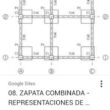In a dramatic leap toward technological dominance, Abu Dhabi has announced the construction of a massive artificial intelligence hub, dubbed “Stargate,” in partnership with U.S.-based OpenAI and Emirati tech firm G42. Spanning an area of 10 square miles—surpassing the size of Monaco—the ambitious facility aims to position the United Arab Emirates at the forefront of the global AI race.

Designed to serve as one of the world’s largest AI supercomputing centers, Stargate will require an enormous energy supply, equivalent to the output of five nuclear reactors. Once operational, the data center is expected to power cutting-edge AI systems, large-scale machine learning, and advanced computing workloads that drive innovations across industries.
The initiative is drawing support from major U.S. technology companies, including Microsoft and Oracle, signaling a growing collaboration between Western tech giants and the Gulf state. These partnerships could help transform Abu Dhabi into a critical node in the future of global digital infrastructure, giving the UAE a strategic role in shaping next-generation AI development beyond American and Chinese spheres of influence.
However, the scale and ambition of Stargate are raising eyebrows in Washington. G42, the Emirati firm co-leading the project, has previously maintained business ties with Chinese companies, fueling concerns about national security and geopolitical leverage in an increasingly fragmented tech landscape.
As AI becomes a centerpiece in global power struggles, the Stargate project underscores a shifting dynamic where Middle Eastern nations are emerging as influential players. If successful, the facility could redefine the geography of AI innovation, making Abu Dhabi not just a participant—but a pivotal architect—in the next era of intelligence infrastructure.

















